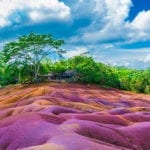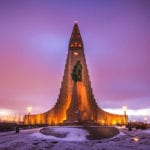 History
History  History
History  Health
Health 10 Everyday Activities That Secretly Alter Consciousness
 History
History Top 10 Historical Disasters Caused by Someone Calling in Sick
 Animals
Animals 10 New Shark Secrets That Recently Dropped
 Movies and TV
Movies and TV 10 Forgotten Realities of Early Live Television Broadcasts
 Technology
Technology 10 Stopgap Technologies That Became Industry Standards
 Weird Stuff
Weird Stuff 10 Wild Facts About Taxidermy That You Probably Didn’t Know
 Travel
Travel 10 Beautiful Travel Destinations (That Will Kill You)
 Miscellaneous
Miscellaneous 10 Modern Marriage Rituals Born from Corporate Branding
 Weird Stuff
Weird Stuff Ten Bizarre Visions of 2026 from Fiction
 History
History 10 “Modern” Problems with Surprising Historical Analogs
 Health
Health 10 Everyday Activities That Secretly Alter Consciousness
 History
History Top 10 Historical Disasters Caused by Someone Calling in Sick
Who's Behind Listverse?

Jamie Frater
Head Editor
Jamie founded Listverse due to an insatiable desire to share fascinating, obscure, and bizarre facts. He has been a guest speaker on numerous national radio and television stations and is a five time published author.
More About Us Animals
Animals 10 New Shark Secrets That Recently Dropped
 Movies and TV
Movies and TV 10 Forgotten Realities of Early Live Television Broadcasts
 Technology
Technology 10 Stopgap Technologies That Became Industry Standards
 Weird Stuff
Weird Stuff 10 Wild Facts About Taxidermy That You Probably Didn’t Know
 Travel
Travel 10 Beautiful Travel Destinations (That Will Kill You)
 Miscellaneous
Miscellaneous 10 Modern Marriage Rituals Born from Corporate Branding
 Weird Stuff
Weird Stuff Ten Bizarre Visions of 2026 from Fiction
10 Interesting Political Traditions from Around the World
Have you ever wondered how traditions affect politics around the world? We’re taking a closer look at 10 unusual political traditions and rituals that have affected countries for centuries. From tea ceremonies to coronations and even dry laws, these culturally significant practices might change the way you look at your own government.
Related: 10 Influential US Political Parties That Disappeared
10 Changing of the King’ s Guard (United Kingdom)
The Changing of the King’s Guard is a ceremonial event that takes place in London, England, specifically at Buckingham Palace and St. James’s Palace. The King’s Guard is the name given to the infantry contingent responsible for guarding these palaces, and the ceremony involves the Old Guard handing over responsibility for protecting the palaces to the New Guard. The guard is made up of a company of soldiers from a single regiment, which is split in two, providing a detachment for each location.
The ceremony follows a traditional format, with the Old Guard lining up in front of the palace and being relieved by the New Guard, which arrives from Wellington Barracks. The New Guard is accompanied by a band, and the ceremony represents a formal handover of responsibilities. The Changing of the King’s Guard takes place daily in early summer and four times per week otherwise.
9 Sampeah (Cambodia)
Sampeah is a traditional Cambodian greeting style that shows respect. It involves placing one’s palms together while giving a slight bow. When greeting someone, the word “chumréab suŏr” is often spoken, while “chumréab léa” is used when saying goodbye. It holds significant importance in Khmer culture, which draws influences from Indian Hindu/Buddhist traditions.
The Cambodian government promotes Sampeah as a means to foster national unity and pride in Cambodian culture. There’s the Sampeah Kru ceremony, which involves dancers and musicians paying homage to their teachers and artistic spirits. Sampeah is incorporated into state visits and cultural festivals, too, adding a distinct Cambodian touch.
In general, Sampeah shows respect for political leaders and high-status individuals. When Cambodians meet, they greet each other with Sampeah. The height of their hands during the gesture corresponds to the status of the person being greeted. This tradition is also used to convey appreciation and apologies in political situations. It serves as a sign of respect while expressing gratitude for assistance or apologizing for mistakes.
Sampeah plays a multifaceted role in Cambodian politics, bridging cultural traditions, respect, and gratitude.
8 Tea Ceremony (China)
The Chinese tea ceremony, also known as Cha Dao, is a traditional Chinese ritual that has held great cultural and political significance in China for over a thousand years. The basic steps include preparing tea, offering or serving tea, and appreciating the tea. The ceremony emphasizes the tea itself, focusing on what the tea tastes and smells like.
The tea ceremony has been used as a means of diplomacy and alliance-making. For example, in 2013, Chinese President Xi Jinping served tea to then-U.S. President Barack Obama during a meeting in California, which was seen as a way to promote goodwill and improve relations between the two countries.
The ceremony has also been used as a way to exercise soft political power. For example, in 2015, China launched a global campaign to promote its tea culture and establish itself as a leader in the tea industry. The campaign included various events and activities, such as tea tastings and cultural exchanges. In 2018, the Chinese government launched another campaign to promote the tea culture of the ethnic minority groups like the Tibetan and Yi people. The campaign was seen as a way to promote national unity and foster a sense of pride.
7 State Opening of Parliament (United Kingdom)
The State Opening of Parliament is a ceremonial event that marks the beginning of a new session of the Parliament of the United Kingdom. The event takes place on the first day of a new session, which is usually in May or June, and traditionally in November. First, the King or Queen sets out to the Palace of Westminster, accompanied by the Household Cavalry, in a State coach. Meanwhile, the Imperial State Crown and regalia travel separately in their own carriage.
Upon arrival, the King or Queen heads to the Robing Room and is adorned in the crimson velvet Robe of State. Leading the Royal Procession, they make their way toward the chamber of the House of Lords.
Before any public business can commence, the King or Queen officially opens Parliament by delivering a speech, addressing both Houses. The Lord Chancellor presents the speech, carried in a special silk bag, to the monarch while kneeling.
Once the King or Queen departs, members of both Houses engage in debates regarding the contents of the speech. They subsequently agree on an “Address in Reply to Her/His Majesty’s Gracious Speech.” This event holds a unique place in the UK ceremonial calendar. It serves as a moment when the three branches of government—the legislature, the executive, and the judiciary—converge, along with the monarch, within the same venue.
6 Noh Theatre (Japan)
Although primarily an art form, Noh Theatre has historically been used to convey political messages or to honor political figures in Japanese culture.
Noh theater is a traditional Japanese theatrical form that combines elements of dance, drama, music, and poetry into a highly stylized, aesthetic retelling of a well-known story from Japanese literature. Noh developed from ancient forms of dance drama and from various types of festival drama at shrines and temples that had emerged by the 12th or 13th century. Noh became a distinctive form in the 14th century and was continually refined up to the years of the Tokugawa period (1603–1867).
Noh theater has been used to convey political messages in Japan in various ways. The play Takasago portrays the ideal of a harmonious society in which everyone knows their place and performs their duties with grace and dignity. The play Atsumori is seen as a commentary on the futility of war.
In the late 1930s, the American poet Ezra Pound became involved in a propaganda campaign to promote Noh film as a way to promote Japanese culture and counter Western imperialism. The campaign was seen as a way to promote Japanese nationalism and project a positive image of the country to the world.
5 Royal Coronation (Thailand)
The Royal Coronation in Thailand is a three-day ceremonial event that marks the formal ascension of the monarch to the throne. The coronation is a blend of Hindu and Buddhist traditions that date back several centuries. It begins with the king participating in the purification bath, where sacred waters collected from all 76 provinces of Thailand are used for anointing. This bath signifies a symbolic cleansing and renewal. Then the king is seated beneath the majestic nine-tiered Umbrella of State.
The next significant step takes place at the Temple of the Emerald Buddha, where the king proclaims himself as the patron of Buddhism, the predominant religion followed by over 90% of Thais. On the second day of the coronation, the king is officially crowned. The royal regalia, including the Great Crown of Victory, the Sword of Victory, the Royal Sceptre, and the Royal Fan and Fly Whisk, are presented to the king, symbolizing his rightful position as the ruler.
Following the coronation, the king delivers a pivotal speech from the throne. The grand finale takes place on the third day, with the king being carried in a procession through Bangkok’s old quarter. This traditional display showcases the monarch to the public, fostering a sense of pride and unity among the Thai people.
4 Yoga Promotion (India)
In India, yoga holds political significance as it has been utilized as a tool for political mobilization and shaping national identity. The Indian government has actively promoted yoga to foster a sense of unity and shared identity among its citizens. To highlight the importance of yoga, the government designated June 21st as International Yoga Day in 2015, an annual celebration aimed at promoting yoga benefits globally.
Various political parties in India, like the Bharatiya Janata Party (BJP) in power, have employed yoga as a means to advance their Hindu nationalist agenda and appeal to voters. By associating themselves with yoga, they have tried to connect their political ideology and this ancient practice.
Yoga has also been promoted by the Indian government to improve the overall health and well-being of the population. Recognizing the rising prevalence of lifestyle diseases like diabetes and hypertension, the government has launched initiatives that endorse yoga as a means to combat these health challenges.
However, the government’s emphasis on promoting yoga has faced criticism. Some argue that it may be used as a tool to impose Hindu rituals on non-Hindus and marginalize religious minorities within the country. In contrast, yogis everywhere contend that it transcends religious boundaries, serving as an exercise regimen accessible to people of all faiths.
3 Inauguration Day (United States)
Inauguration Day in the United States is a ceremonial event that marks the beginning of a new presidential term. It’s held every four years on January 20th.
The day begins with the president-elect traveling with the outgoing president and congressional leaders to Capitol Hill to take the oath of office and deliver an inaugural address. The president-elect recites the following oath, in accordance with Article II, Section I of the U.S. Constitution: “I do solemnly swear (or affirm) that I will faithfully execute the Office of President of the United States, and will to the best of my ability, preserve, protect and defend the Constitution of the United States.”
The president then leads a parade back to the White House and caps off the day by attending multiple inaugural balls held throughout the nation’s capital. Inauguration Day is also marked by various traditions and customs, such as the playing of patriotic music, the recitation of prayers, and the firing of a 21-gun salute. The symbolism of the ceremony is critical as it reinforces the peaceful transfer of power that’s one of the foundations of America’s constitutional democracy.
2 Temporary Dry Laws (Mexico)
Yes, Mexico bans the sale of alcohol before an election. This practice is known as “La Ley Seca” or the dry law. The ban is enforced to maintain order during elections and prevent any potential disturbances or violence that may arise from alcohol consumption. The ban typically begins at midnight on the day before the election and lasts until the polls close on election day. The exact duration of the ban may vary depending on the state or municipality.
In some cases, restaurants are still permitted to serve alcohol during the ban as long as it is accompanied by food. But the sale of alcohol in bars, nightclubs, and stores is prohibited. The practice of polling day prohibition has its roots in the pre-Prohibition era when political candidates ensured liquor flowed freely on election days to help them influence undecided voters.
1 Compulsory Voting (Australia)
Yes, Australia has compulsory voting. All eligible citizens are legally required to vote in federal and state elections. If you fail to vote in an election, you may be fined. The amount of the fine varies depending on the state or territory, but it is typically around $20 to $50. If you don’t pay that fine, you may be taken to court.
Now, anyone with a valid reason for not voting, such as illness or being out of the country, can apply for an exemption from the fine. If you fail to vote in several elections in a row, you may be removed from the electoral roll and lose your right to vote.
So how has this affected their polls? Voter turnout in Australia is consistently high, with overall turnout never dipping below 90%. But in the 2022 federal election, voter turnout hit a new low, falling to the lowest level since introducing compulsory voting.








